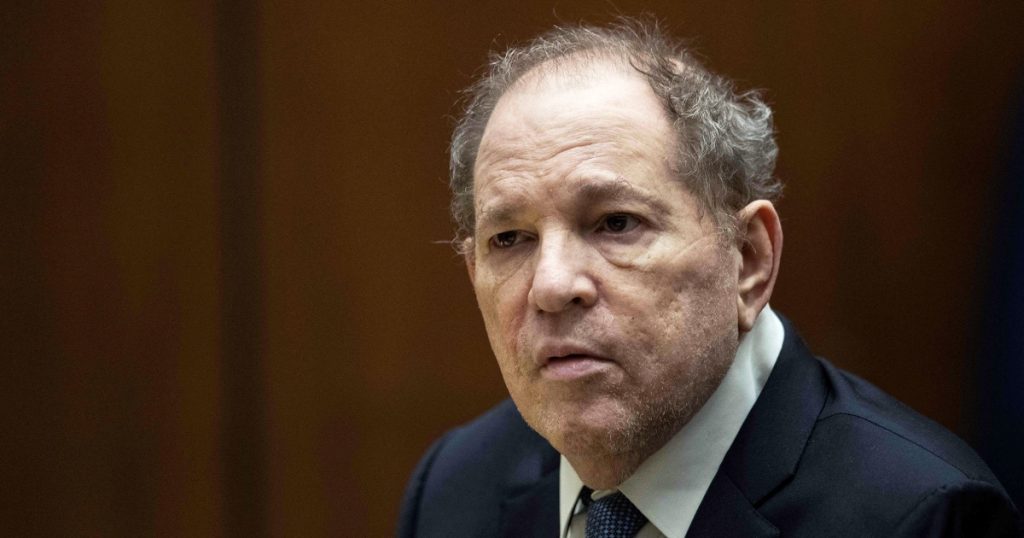Harvey Weinstein’s 2020 rape conviction was overturned by the state Court of Appeals in New York, leading to the possibility of a new trial. The court found that the judge in the original trial had made improper rulings, such as allowing women to testify about allegations that were not part of the case. This decision reopens a painful chapter in America’s reckoning with sexual misconduct by powerful figures, which began in 2017 with the allegations against Weinstein. The new trial could force his accusers to relive their traumas by testifying once again.
Weinstein, who is currently 72 years old, has been serving a 23-year sentence in a New York prison following his conviction on charges of criminal sex act for forcibly performing oral sex on a TV and film production assistant in 2006 and rape in the third degree for an attack on an aspiring actor in 2013. The overturning of his conviction brings into question the outcome of his previous trial and may lead to a different result in the new trial. This decision has sparked outrage and disappointment among those who believed justice had been served in the original trial.
The original trial against Weinstein was a landmark moment in the #MeToo movement, which aimed to bring attention to and combat sexual misconduct by powerful figures in various industries. The flood of allegations against Weinstein in 2017 was a catalyst for the movement and led to a wave of similar accusations against other prominent individuals. The overturning of Weinstein’s conviction raises questions about the effectiveness of the legal system in addressing cases of sexual misconduct and holding perpetrators accountable for their actions.
Weinstein’s accusers, who bravely came forward to share their stories and seek justice, may now face the prospect of going through another trial and reliving the trauma of their experiences once again. This decision highlights the challenges and difficulties faced by survivors of sexual assault in seeking justice and holding their abusers accountable. The outcome of the new trial will have long-lasting implications for the #MeToo movement and the fight against sexual misconduct in various industries.
The overturning of Weinstein’s conviction has reignited discussions about the prevalence of sexual misconduct and abuse of power in society, particularly in industries where powerful individuals wield significant influence. The case has also brought attention to the flaws and shortcomings of the legal system in addressing cases of sexual assault and holding perpetrators accountable. Advocates for survivors of sexual assault and supporters of the #MeToo movement continue to push for reforms and changes to ensure that victims receive the justice they deserve and that perpetrators are held accountable for their actions.
The impact of the overturning of Weinstein’s conviction extends beyond the individual case to highlight broader issues of systemic inequality and injustice in society. The decision to grant Weinstein a new trial raises concerns about whether the legal system is truly equipped to handle cases of sexual misconduct effectively and whether survivors can trust that their voices will be heard and their experiences validated. Moving forward, it is essential that efforts to address and prevent sexual misconduct are strengthened, and that survivors are supported in seeking justice and healing from their traumatic experiences.


